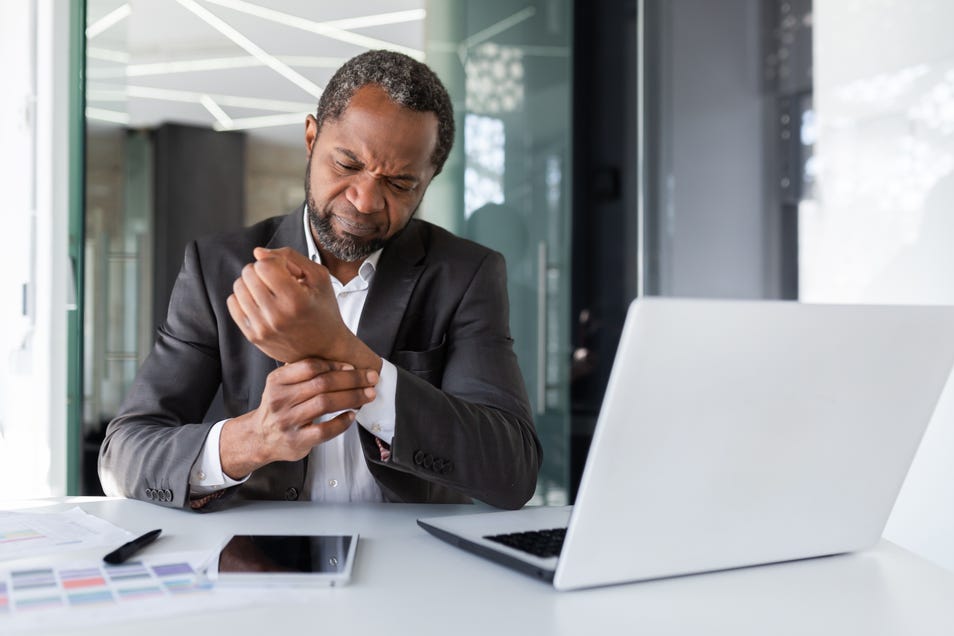Common Causes

NECK
Neck pain can be caused by bad posture, (3:11) sleeping in an awkward position, stress and tension or working at a computer for a prolonged period of time. (10:1, 3, 4)
If you recently had a car accident, pain could be caused by whiplash; a painful injury caused by a sudden jerking of the head. (3:4)
In extreme cases, neck pain can be due to a slipped disk. (11:1)
If you experience severe neck pain-to the extent that you may even be unable to lower your chin to your chest, (3:3) together with other symptoms such as a rash, nausea or vomiting, it could be linked to meningitis. It’s advisable to see a doctor if this occurs. (3:1, 2, 3)
SHOULDER
Rotator cuff tendonitis, an irritation or inflammation of the tendons in the rotator cuff, (2:5) is the most common cause of shoulder pain. (5:13) (2:10) This inflammation can occur due to overuse of the shoulder, (2:8) particularly if you’ve recently played sport in which you throw a ball or lift heavy weights. (2:7) It could also be because of a specific injury to the shoulder. This pain will get worse if you lift your arm above your head and may disrupt sleep. (8:3)
Any serious injury to the shoulder, such as a dislocation or separation of the shoulder, can cause serious pain. (1:4)
A condition called frozen shoulder makes movement of the shoulder very restricted, it is characterized by stiffness and pain in the shoulder joint. The condition occurs when the ligaments and tendons that comprise the shoulder joint thicken and tighten, thereby restricting movement. (2:12) (7:3)
Some of the causes of frozen shoulder are: (7:3)
Lack of use due to chronic pain.
Rheumatic disease that is getting worse.
Bands of tissue that grow in the joint and restrict motion.
Lack of the fluid that helps the shoulder joint move.
LOWER BACK
A sprain, strain or spasm of the ligaments in the back is the most common cause of back pain. (1:4, 5) This can happen from bad posture (5:4) or if you lift something heavy, placing strain on your lower back. If the spine becomes overly strained or compressed, a disc from in between the vertebra can slip outwards. This can irritate the nerves that are rooted to the spinal cord, pain. (5:3,5,7)
Mostly, pain in the lower back is due to a specific trauma to the back. But it also may be due to arthritis, osteoporosis or other bone diseases. (1:1) (5:3)
